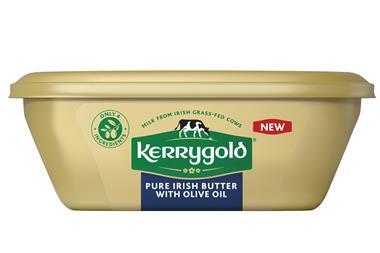Specialist cheese producers who use cloth wrapping techniques to store cheeses during maturation have warned retailers to expect a price hike.
The cheese makers have been hit by an EU ban on using the gas methyl bromide to control cheese mites, which would otherwise bore through the cloth and expose the ripening cheese to air and mould.
The compound has been used since the 1940s by traditional Cheddar makers and is still used in the soft fruit industry, but it is also a potent destroyer of the ozone layer and in 2000 it was agreed by EU environment ministers to restrict it for environmental reasons.
A derogation secured by the UK to keep using the gas has now expired, and no suitable replacement has been found. Producers say only regular hand-cleaning and inspection of individual cheeses can keep the mites at bay. This is a far more labour-intensive and therefore expensive process.
"Businesses will have to take on one or more extra staff, but the hardest part may be getting people to do it," said Stephen Keens of Keens Cheddar, which is a member of the West Country Farmhouse Cheesemakers Group.
Some members felt sore that methyl bromide had been banned in cheesemaking, but was still allowed in the forestry and shipping industries, Keens added.
About a dozen manufacturers turning out 1,000 tonnes of cheese each year will be affected by the ban, according to Nigel White at the British Cheese Board.
"No one will be put out of business by the EU's decision," he said, "but it will mean added costs and hassle. The producers will find a way around the ban, but they may well have to put prices up."
The race is now on to find an effective replacement for methyl bromide. The British Cheese Board is sponsoring a research & development programme to source alternatives.
The cheese makers have been hit by an EU ban on using the gas methyl bromide to control cheese mites, which would otherwise bore through the cloth and expose the ripening cheese to air and mould.
The compound has been used since the 1940s by traditional Cheddar makers and is still used in the soft fruit industry, but it is also a potent destroyer of the ozone layer and in 2000 it was agreed by EU environment ministers to restrict it for environmental reasons.
A derogation secured by the UK to keep using the gas has now expired, and no suitable replacement has been found. Producers say only regular hand-cleaning and inspection of individual cheeses can keep the mites at bay. This is a far more labour-intensive and therefore expensive process.
"Businesses will have to take on one or more extra staff, but the hardest part may be getting people to do it," said Stephen Keens of Keens Cheddar, which is a member of the West Country Farmhouse Cheesemakers Group.
Some members felt sore that methyl bromide had been banned in cheesemaking, but was still allowed in the forestry and shipping industries, Keens added.
About a dozen manufacturers turning out 1,000 tonnes of cheese each year will be affected by the ban, according to Nigel White at the British Cheese Board.
"No one will be put out of business by the EU's decision," he said, "but it will mean added costs and hassle. The producers will find a way around the ban, but they may well have to put prices up."
The race is now on to find an effective replacement for methyl bromide. The British Cheese Board is sponsoring a research & development programme to source alternatives.


















No comments yet